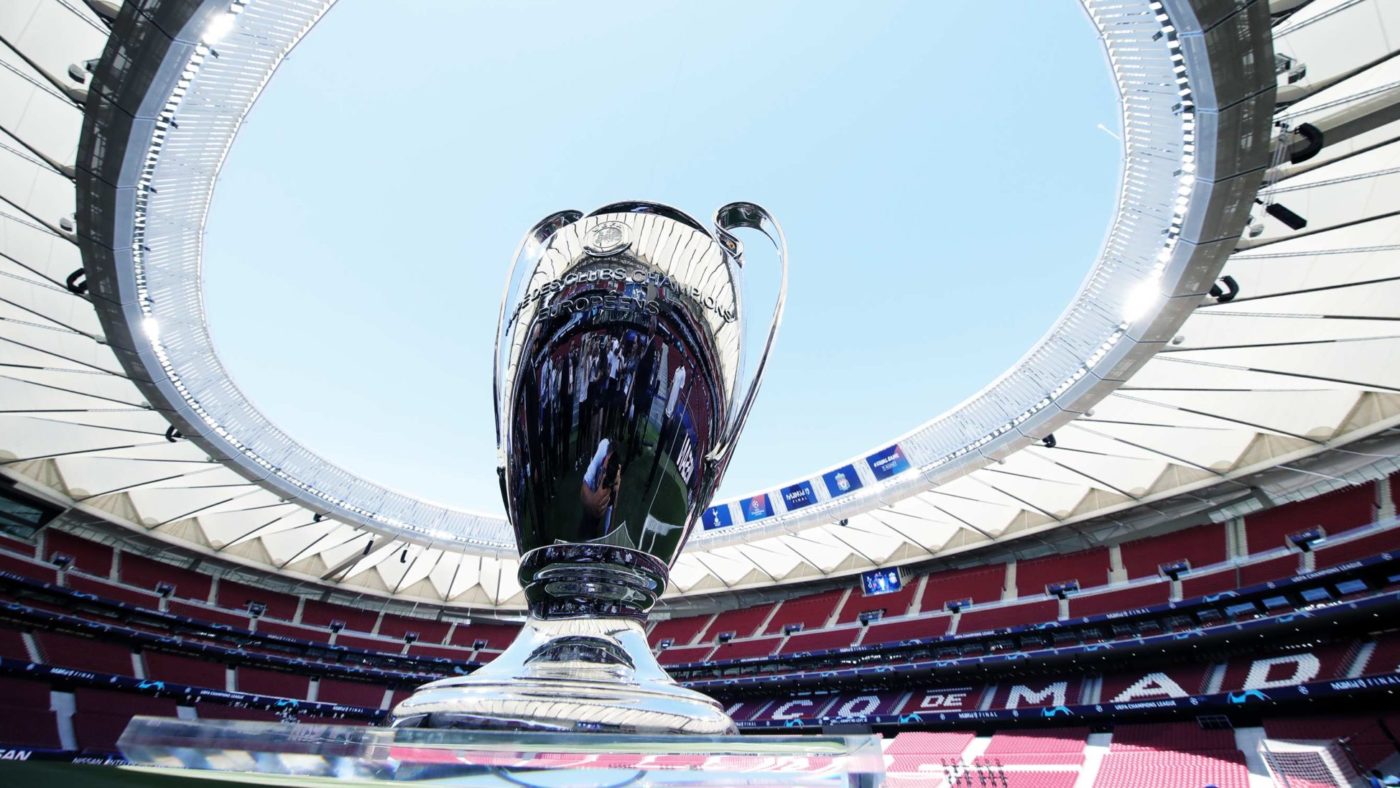This weekend the Champions League final played out between two English teams, four days after the Europa League drew to a close with another all-English final. This is the first time ever that both finals of the two major European competitions have been contested by four teams from the same nation. In other words, English football is in no bad place.
But, despite this, the experience for English fans still lags behind many European nations. Ticket prices and availability, attendance, atmospheres and unpredictable match-scheduling are all barriers to the match day experience and rich footballing culture that most football fans crave, and that the likes of Germany achieve very well. There is no simple fix to this, instead there are many things that we can do. It is clear that implementing safe standing at football grounds should be a top priority in this regard, but so too should ditching the ban on televised football between 2.45 and 5.15 on Saturday afternoons.
The on-screen football ban was originally dreamt up by Bob Lord, former Burnley FC Chairman, in the 1960s. He thought televised football would damage attendance at non-televised games. Or to be less charitable, using the man’s own words, ‘we have to stand up against a move to get soccer on the cheap by the Jews who run television’. Vile anti-Semitism (and atrocious use of ‘soccer’) aside, Lord was wrong about the benefits of the ban for a several reasons.
First, Lord did not predict the power that the TV companies would hold over the fixture schedule. With the 3pm ban in place, and the money received by the Premier League from broadcasting companies for each televised game going through the roof, naturally more and more games have moved to times when they are allowed to broadcast.
Fans who follow their teams home and away are no longer just giving up their Saturday afternoons, but instead their Fridays, Sundays, and Mondays, having to take time off work for the long-distance travel and often forced to cancel travel plans and re-arrange when games are moved for the TV at late notice. This isn’t a problem with the TV companies, they are making matches more accessible to millions whilst bankrolling one of the world’s greatest leagues. If they were allowed to show the 3pm games, they would.
Nor did Lord foresee the other bizarre outcomes of the ban. For example, an Everton fan in Toronto can watch his beloved Toffees, as well as every other Premier League game, with ease. However if a life-long blue from Toxteth can’t get a ticket, they have to listen to what limited radio coverage they can find. Of course in this position a fan might find an illegal stream on the internet, choosing a poor-quality feed back from Saudi Arabia — where fans also have unfettered Premier League access — over BBC 5 Live. It is thus not just the fans that are harmed by the ban, but it also serves to funnel money away from the Premier League itself.
If Lord were alive today he may retort that all of this is necessary to protect the sanctity of the 3pm kick-off and the attendance at non-televised games. However, this completely misunderstands the draw of going to a live football match. Maybe Lord had higher hopes for the power of TV to replicate the experience or maybe he himself just wasn’t bothered about the thrill of live sport, but ask any football fan today and they will tell you that the two are not comparable.
That is not to criticise the experience of watching football on the TV; many prefer the commentary and analysis that it comes with, not to mention the lack of queues — and regulations — that get between you and a beer.
However, it is clear that if you are one of the hundreds of thousands that enjoy going to see their local team live on a Saturday afternoon, you’re as likely to be prevented from going by the Bournemouth vs Newcastle match being televised as you are by a sudden preference to watch the Rugby instead. That is to say, not at all. The evidence, of course, supports this.
Other arguments in favour of the ban are based on nothing more than nostalgia. Sam Wallace argues that ‘the 3pm blackout is a reminder that this is a sacred time of the day, when the only people watching live football in the UK are those doing so at the ground’.
This is illiberal protectionism in its purest form. Why widen access to something when it has always been this way? Because as Sam himself points out in the same piece, attendances are being harmed. This is because of bizarre match times, not the draw of television as an alternative.
All of these mistakes of Lord can be forgiven given the context in the 1960s. Who could predict then that English football would become so global, or that the broadcasting companies would become so powerful whilst simultaneously televisions ultimately fail to accurately replicate being on the terraces? We need to take another look at the on-screen ban, using evidence, not nostalgia.
CapX depends on the generosity of its readers. If you value what we do, please consider making a donation.


